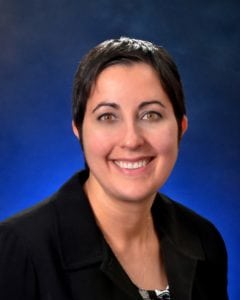There is a talmudic story of the great chevruta (friendship/study partnership) between Rabbi Yochanan and Resh Lakish. The former was a famous rabbi, known for his beauty and his brilliant mind, while the latter was a thief who was known for his brute strength.
The two forged an unlikely friendship. Eventually, Resh Lakish slowly began to change his ways under the mentorship of Rabbi Yochanan. He became learned in Torah.
The two men became the most famous chevruta in rabbinic history, due, in large part, to their ability to find faults in each other’s logic and thinking, and their willingness to receive this feedback with openness in order to grow and learn from it.
This story served as a framework for the launch of a special mentorship training program for the managers of the KentuckyOne Health Medical Group, developed in partnership with Jewish Family & Career Services (JFCS).
Like the rabbinic legend, mentorship can play a transformative role in developing and refining professional identity. Having a safe person with whom one can process feelings, share questions and receive feedback can make all the difference in a professional career.
Sociologists identify soft skills as a primary gap for millennials seeking leadership roles in organizations, while burnout can be a challenge for leaders who are approaching retirement. Jewish Hospital and KentuckyOne are no different. Thanks to a gift from the Klempner family to the Jewish Hospital and Saint Mary’s Foundation, we can now tap the trusted expertise of the career services division of JFCS.
This month, we began a year-long mentoring program to build relationships between experienced and newly promoted leaders. We developed a collaborative curriculum, giving mentors the skills and training they need to help young leaders assume new roles, while deepening our organization’s values, ensuring stability and retention during a time of transition, and facilitating succession planning.
Participants shared their enthusiasm and sense of purpose, grateful that they can give the next generation the gifts that were given to them.
In a time when tweeting our frustrations feels easier than healing the underlying issues, I, too, am grateful … for JFCS, and for the ways in which their commitment to tikkun olam (the repair of the world), education and healing so closely align with our own.
We all have a responsibility to help the next generation, but sometimes we don’t see the opportunities that are right in front of us. Research highlights the ways in which those who mentor receive as much benefit from the relationship as those who are being mentored. “Helping” is a two-way street.
This coming month, let us take time to help the new employee, the child, the niece or nephew, or neighbor who could use extra guidance and affirmation. May each of us welcome opportunities to share our wisdom, as well as those occasions when we can learn from the wisdom of others. Let us recognize that every relationship is a potential chevruta – a chance to learn Torah from someone else and expand our understanding of how G-d works in this world.
(Rabbi Nadia Siritsky is vice president of mission for KentuckyOne Health.)



